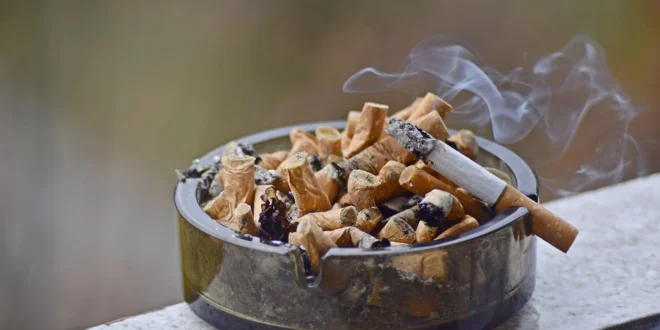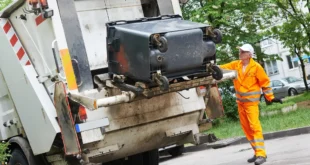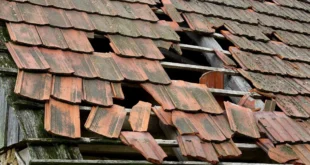Cigarette waste, especially in the form of discarded cigarette butts, poses significant risks to both the environment and public health. With billions of cigarettes smoked worldwide every day, the accumulation of cigarette waste has become a pressing issue. In this blog post, we will delve into the risks associated with discarded cigarette butts and explore effective solutions for tackling cigarette waste, promoting environmental sustainability, and reducing the harm caused by this pervasive form of litter.
The Environmental Impact of Cigarette Butts
Cigarette butts are not biodegradable and can persist in the environment for years. Here are some key environmental risks associated with discarded cigarette waste:
- Toxic Chemicals: Cigarette filters contain cellulose acetate, a type of plastic that releases toxic chemicals such as nicotine, heavy metals, and carcinogens when exposed to water. These pollutants can leach into soil and water bodies, posing a threat to wildlife and ecosystems.
- Marine Pollution: Cigarette butts are a significant contributor to marine pollution. When discarded on streets or washed into storm drains, they often end up in rivers and oceans, where they can be ingested by marine animals, causing harm and even death.
- Wildfire Hazard: Improperly discarded cigarette butts can ignite fires if not fully extinguished. This risk is particularly prevalent in dry climates, leading to devastating wildfires and property damage.
Effective Solutions for Tackling Cigarette Waste
To address the environmental and public health risks posed by cigarette waste, it is crucial to implement effective solutions. Consider the following approaches:
- Education and Awareness: Promote education campaigns to raise awareness about the environmental impact of discarded cigarette butts. Encourage smokers to take responsibility for proper disposal and highlight the consequences of littering.
- Designated Smoking Areas: Establish designated smoking areas equipped with ashtrays or receptacles specifically designed for cigarette waste. This encourages responsible disposal and reduces the likelihood of discarded butts polluting the surroundings.
- Improved Waste Infrastructure: Increase the availability of appropriate waste infrastructure such as ashtrays, bins, and recycling facilities in public spaces, including parks, sidewalks, and beaches. Adequate infrastructure helps facilitate proper disposal and reduces the likelihood of littering.
- Financial Incentives: Introduce deposit and return schemes that offer financial incentives for returning used cigarette butts, similar to those implemented for bottles and cans. This encourages individuals to collect and dispose of cigarette waste responsibly.
- Biodegradable Filters: Develop and promote the use of biodegradable filters as alternatives to traditional plastic-based filters. Biodegradable filters can help reduce the environmental impact of discarded cigarette butts.
- Strengthened Regulations and Enforcement: Implement and enforce stricter regulations and penalties for littering, specifically targeting cigarette waste. This sends a clear message that proper disposal is required and helps deter individuals from littering.
- Community Clean-up Initiatives: Organize community clean-up events focused on removing cigarette waste from public spaces. These initiatives raise awareness, engage communities, and contribute to creating cleaner and healthier environments.
- Recycling Programs: Explore innovative recycling programs that turn discarded cigarette butts into useful materials. Some initiatives have successfully repurposed cigarette waste into products such as plastic lumber, textiles, or industrial materials.
The Role of In-Home Fire Extinguishers in Preventing Cigarette-Related Fires
In-home fire extinguishers are a crucial tool for preventing cigarette-related fires. Despite the decrease in smoking rates, improperly discarded cigarette butts remain a leading cause of residential fires. Having a fire extinguisher readily available in the home can provide homeowners with the means to quickly suppress small fires before they escalate.
Individuals must know how to correctly use a fire extinguisher, and inspections should be carried out regularly to ensure they are in working order. As part of broader efforts to tackle cigarette waste, advocating for the widespread adoption and proper maintenance of in-home fire extinguishers can significantly mitigate the risk of fires started by discarded cigarette butts.
Final Words
Tackling cigarette waste is vital for safeguarding the environment and public health. By understanding the risks posed by discarded cigarette butts and implementing effective solutions such as education and awareness campaigns, designated smoking areas, improved waste infrastructure, financial incentives, biodegradable filters, strengthened regulations and enforcement, community clean-up initiatives, and recycling programs, we can make significant strides in reducing cigarette litter and its harmful consequences. It’s time to come together as individuals, communities, and governments to address this pressing environmental issue and create a cleaner, healthier world for all.
Need more health tips? Bookmark our blog for the latest posts.
 SlushWeb Bringing Facts to Light
SlushWeb Bringing Facts to Light



